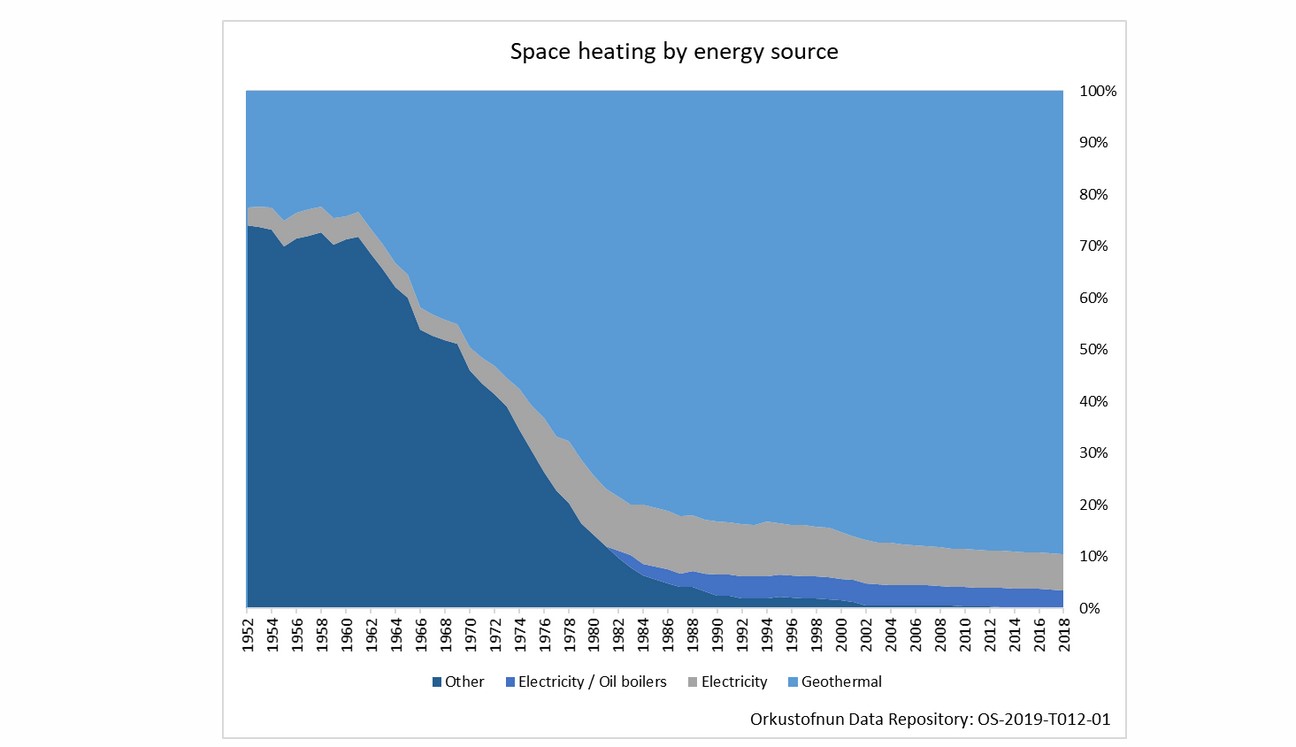
Development of fuel use for district heating in Iceland since 1952 can be seen in the figure below, and numerical data for the period from 2008-2018 can be found in the table. Currently approx. 90% of the housing in Iceland is heated with direct geothermal. 9% is heated with electricity and just under 1% with oil – mostly in the most rural areas and small island communities. The main changes in fuel use for heating in the last 10 years is the slight increase in the share of geothermal and a decrease in the share of oil. As can be seen from the data almost all space heating is by renewable energy resources, mainly geothermal. Please note that the electricity grid for Iceland in 2017 was 73% hydro, 27% geothermal, 0,01% fuel and 0,04% wind. Source: National Energy Authority.

During the last five years, the development of the use of direct geothermal has continued to increase, even though it is already at a very high level. The search for sufficiently good boreholes in regions without direct geothermal for District Heating has continued and will continue in the next few years.
The most important legal framework for District Heating is the Energy Law, which dates back to 1967. In 2003, a special piece of legislation was passed on the electricity market, but District Heating is still primarily subject to the Energy Law, which provides certain rights to municipalities, including a monopoly right to run a District Heating system provided that at least 51% of the organisation is publicly owned. The legislation also provides municipalities with rights to cross private properties with pipes etc. if that is deemed necessary to provide the municipality or parts of it with geothermal space heating. Damages to private property must, of course, be compensated. Hot water itself may be either in public or private ownership (i.e. the land where the boreholes are placed), in which case the municipality will have to negotiate the price for using the hot water or indeed purchase the land concerned. Other legislation which may have an impact on District Heating includes several (mostly EU-related) environment-related laws, such as the law on environmental assessment.
If you would like to learn more, you can purchase the latest Country by Country Survey.
More information:
Samorka – Icelandic Energy & Utilities – samorka.is